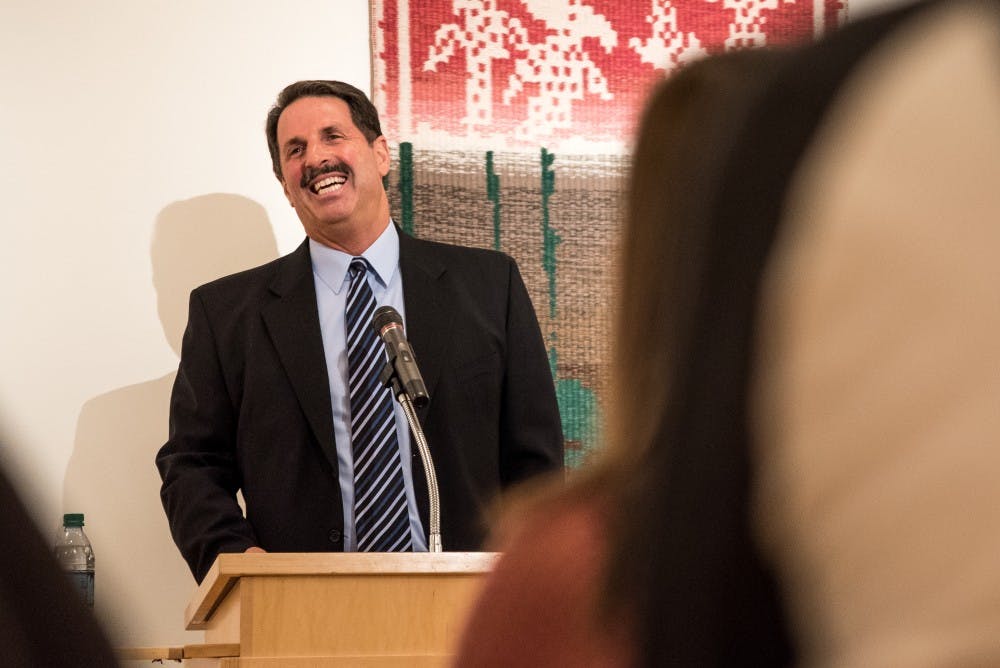Police chief candidate Borkovich talks safety, punishment at forum

The Central Michigan University community asked police chief candidate Bruce Borkovich many questions to in a forum May 2.
Borkovich stood behind a lectern in the Park Library Baber Room to answer questions related to marijuana policy, 24/7 dispatch, and how he handled certain situations at Ferris State University, where he is the director of Public Safety.
Borkovich and three other candidates hope to fill the vacancy that will be left by the retirement of Police Chief William Yeagley after 10 years of being in the position. Yeagley will leave his position on July 31.
According to the Ferris State University website, he began his career as a public school teacher and coach before moving into a job as a conservation officer for the State of Michigan. He stayed in the Department of Natural Resources for 20 years before retiring in 2006.
At the event, Borkovich gave a brief introduction about himself before opening to the audience for questions. For many of the questions about working with other campus departments, students and surrounding agencies, he talked about building relationships.
Borkovich wants students to understand that he’s not out to get them. When asked about the challenges of policing at college campuses compared to other environments, Borkovich said it is important to understand that most of the people on campus are young with developing minds. Because of this, they make more mistakes, he said.
Borkovich said he doesn’t want to punish students who are apologetic and one-time offenders. He just wants to keep the campus safe.
“Our main job isn’t to write tickets or to click handcuffs onto people,” Borkovich said. “We have a bigger responsibility, and our main job is to keep people safe.”
When someone asked him about marijuana laws, his policy was more authoritative. At Ferris State, he developed a zero-tolerance policy for the drug. The housing department at Ferris State said it needed to remain a marijuana-free campus under federal law. He said something is rarely zero tolerance in his career.
“In residence halls on (the Ferris State) campus, we are aggressively writing civil infractions of minor in possession,” Borkovich said. “it is our way of supporting our partners all across campus in maintaining the decorum they want to see.”
Borkovich's favorite part of his time at Ferris State building relationships with student-athletes, he said. He developed a strong relationship with the athletic department, he said.
He said many of these athletes were from minority groups, many of whom came from communities where police are not looked fondly of. He wanted to show that the police are not the bad guys and they were there to protect them. When relationships were built with these athletes, that’s what Borkovich was proud of.
Associate Vice President of Facilities Management Jonathan Webb asked a question about how Borkovich would work and connect with people who are not like him. He responded by saying that he wants everyone to see him as a person first and gain their trust.
“I don’t care who you are or where you’re from, (everyone) wants to trust authority figures,” Borkovich said. “You can’t expect that because you put badge one someone.”






